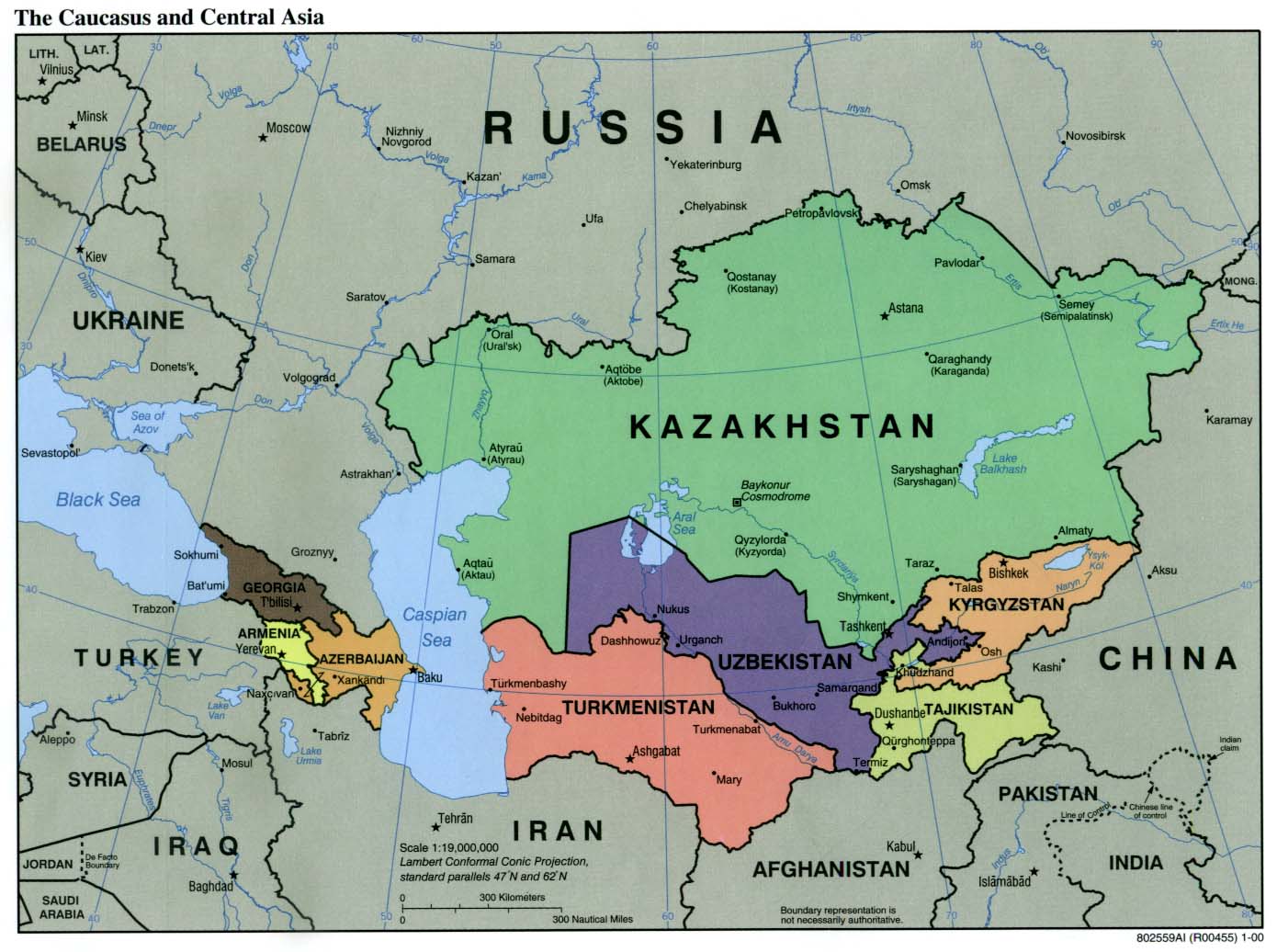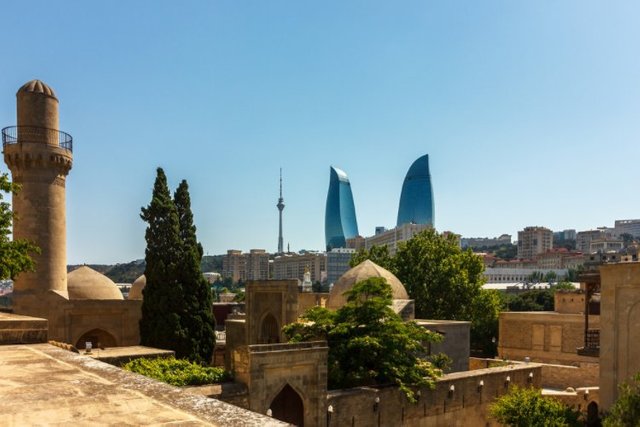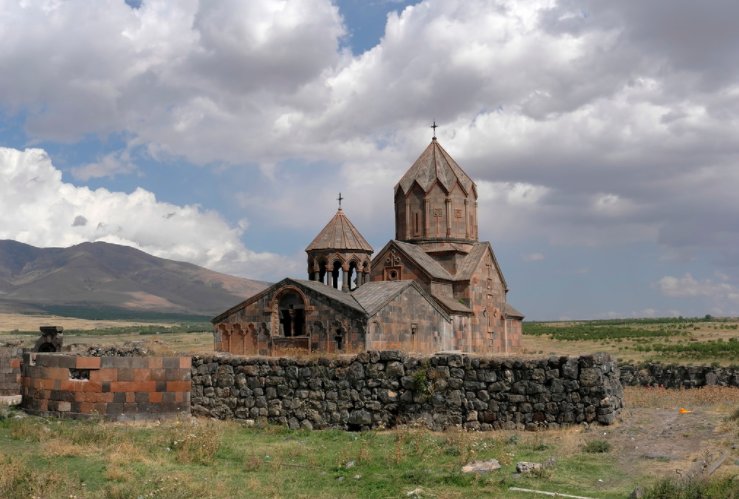Post-Soviet History - Foreign Policy of Armenia, Azerbaijan and Georgia
Foreign policy may be defined as “a set of goals, directives or intentions, formulated by persons in official or authoritative positions, directed at some actor or condition in the environment beyond the sovereign nation state, for the purpose of affecting the target in the manner desired by the policy makers.” (Jacob Gustafsson, “How can we Study Foreign Policy Change?” Cooperation and Conflict, 1999, p. 75).
However, there are different views on what foreign policy is and how to explain a country’s foreign policy activities. Also, as the activities of a state may only be understood in relations to other states, foreign policy is difficult to separate from international politics, the study of interactions between two or several entities in the international system. Under this link you find a brief introduction to theories on international relations and foreign policy:
A Brief Introduction to Theories of International Relations: http://www.people.vcu.edu/~wnewmann/468theory.htm
The foreign policy of the three South Caucasian states, Armenia, Azerbaijan and Georgia, is to a high degree conditioned by geography. Armenia’s geographical location, surrounded by Georgia, Azerbaijan, Turkey and Iran, and with no access to the sea, makes it highly dependent on its neighbors, restricting its foreign policy room of manoeuvre. While Azerbaijan has access to the Caspian Sea, it has no access to the oceans, which makes it dependent on its neighbors for transport of its oil- and gas resources to the world markets. Geographically more fortunate Georgia, with its access to the Black Sea, is less restricted than Armenia and Azerbaijan in terms of access to the outside world, but these possibilities are restricted by Russia’s interests in the eastern stretch of the Black Sea.

For Georgia and Azerbaijan the geographic factor also has an influence on their foreign policy in another important aspect. Georgia and Azerbaijan have lost control over considerable parts of their territories. Since the beginning of the 1990’s South Ossetia and Abkhazia have been outside the control of the central authorities in Tbilisi. Nagorno- Karabakh with surrounding territories (all in all approximately 20% of Azerbaijan’s territory) has been outside the control of the central authorities in Baku. The problems related to the territorial integrity of the two countries have made them vulnerable to external manipulations, especially from Russia. In august 2008 Russia intervened militarily in the Georgia –South Ossetia conflict and subsequently recognized the independence not only of this breakaway region but also of Abkhazia.
For post-Soviet Georgia relations with Russia has been the main foreign policy problem. In the view of Georgia Russia, due to its support of Abkhasia and South Ossetia, has been a constant threat to Georgia’s territorial integrity. Since the beginning of the 1990s relations between Georgia and Russia have been tense. The august 2008 Russian intervention in Georgia further deteriorated the relations between the two countries.
The European Union Monitoring Mission (EUMM) deployed to Georgia following an EU mediated agreement ending the August 2008 Russia-Georgia war, is denied access to the territories controlled by the authorities in the break away regions South Ossetia and Abkhazia.

For Azerbaijan the main foreign policy issue is regaining control over Nagorno-Karabakh which, in the view of Azerbaijan is not an internal conflict, but a conflict with Armenia. Relations between Azerbaijan and Armenia are hostile and prospects of a settlement of the Karabakh conflict remote. The conflict also affects Azerbaijan’s’ relations with Russia. In the view of Azerbaijan Russia supports Armenia in the conflict and Azerbaijan is concerned over military cooperation between Armenia and Russia.

For Armenia, its support of the Karabakh-Armenian side in the conflict has distorted relations not only with Azerbaijan but also with Turkey, a supporter of Azerbaijan in the conflict. Contrary to Georgia and Azerbaijan Armenia is positively oriented towards Russia and considers Russia as a provider of protection against both Azerbaijan and Turkey.
All three South Caucasian states have sough to establish cooperation with the West and applied for membership in international organization. All of the three states are members of the OSCE (1992), Council of Europe (Georgia 1999, Armenia and Azerbaijan 2001); NATO’s Partnership for Peace program (1994); all have Partnership and Cooperation Agreements with EU (1999) and all are also included in EU’s New Neighborhood Policy (2004).

The most western-oriented of the three countries is Georgia, which has sought to lessen its political dependence on Russia by obtaining as close as possible cooperation with the West, including membership in the NATO. Georgia's complicated relations with Russia and the lack of control over parts of its own territory (South Ossetia and Abkhazia) have, however, prevented Georgia from obtaining this goal, at least for the time being. Armenia is the least western-oriented of the three South Caucasian states while Azerbaijan has sought close cooperation with the west, especially with the aim of attracting western investments in the production and transportation of its oil and gas resources.
While Azerbaijan also has sought to lessen its political dependence on Russia it has chosen a more cautious foreign policy line, probably due to a realistic understanding that Russia holds the key to a settlement of the Nagorno-Karabakh conflict. While relations between Azerbaijan and Armenia are tense, relations between Azerbaijan and Georgia are good, based mainly on mutual interest in economic cooperation. Georgia is a strategic transit country for Caspian oil and gas and Georgia’s strained economy derives profits from transit fees.
Georgia – Armenian relations are reasonably good, however, the Armenian minority in southern Georgia (Javakheti) is a latent source of friction. While Georgia has established good relation with Turkey, based mainly on economic considerations, Armenia has established good relations with Iran based on economic as well as strategic considerations. Exposed to economic blockade from Azerbaijan and Turkey, Armenia has sought to alleviate the effects by cooperation with Iran. Azerbaijan’s relation to Iran is reserved, due partly to Iran’s cooperation with Armenia and disagreements on the principles for delimitation of the Caspian Sea.
Recommended Literature:
Charles King: The Ghost of Freedom. A History of the Caucasus, pp. 243-261
Shireen t. Hunter, The Evolution of the Foreign Policy of the Transcaucasian States In: Garry K. Bertsch et al. (eds), Crossroad and Conflict. Security and Foreign Policy in the Caucasus and Central Asia, London, 2000. pp 25-47.
Phillips, D.L. Stability, security and sovereignty in the Republic of Georgia: rapid response conflict prevention assessment, sponsored by the Council on Foreign Relations Center for Preventative Action; David L. Phillips, New York, NY: Council on Foreign Relations Press, 2004. (29 p.)
Svante E. Cornell, The War in Georgia and the Future of the Caucasian Energy Corridor
Two thumbs up. I began interested in this region for this geo-political importance after Paul Salopek of National Geographic's "Out of Eden Walk" started his year journey through Turkey and the Caucasus. I realized this might be a place I should know more about.
Agreed this is a very hotly contested region with numerous geopolitical significance. You have regional forces fighting for identity and sovereignty as well as larger powers fixated on territorial integrity. Then you have external powers like the US & Nato vying for influence and access to resources.